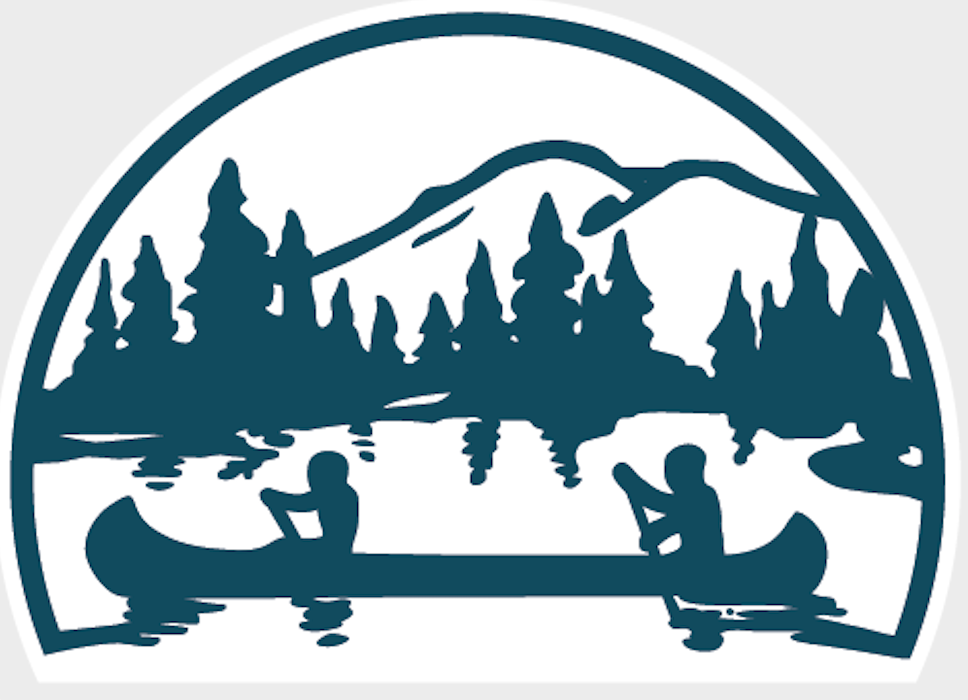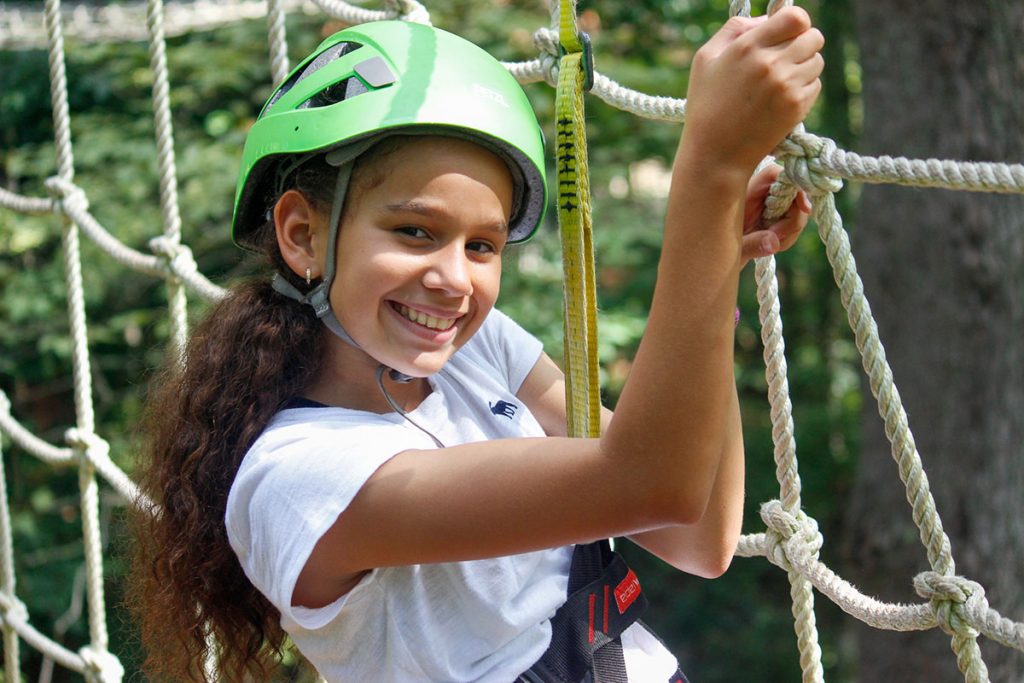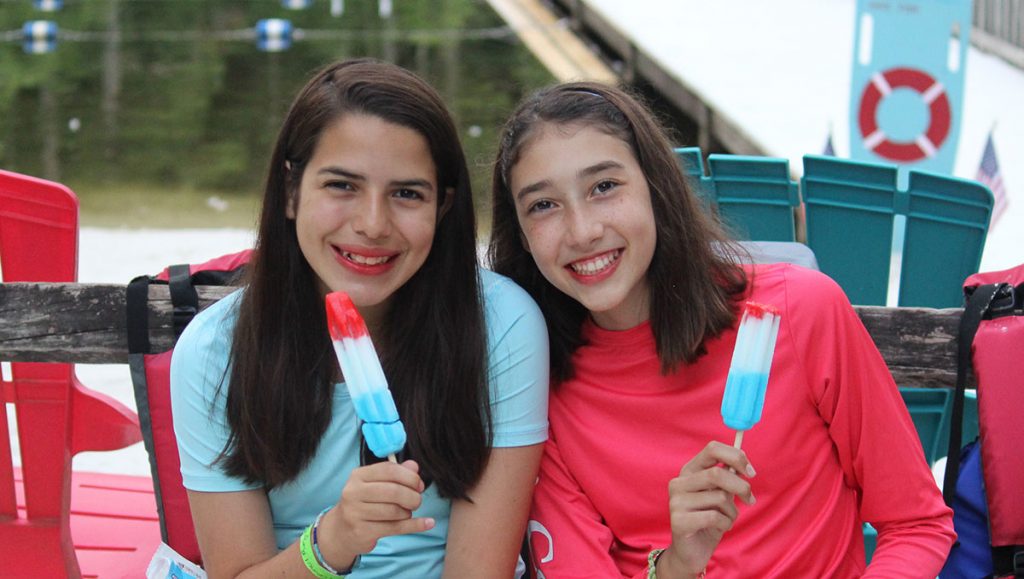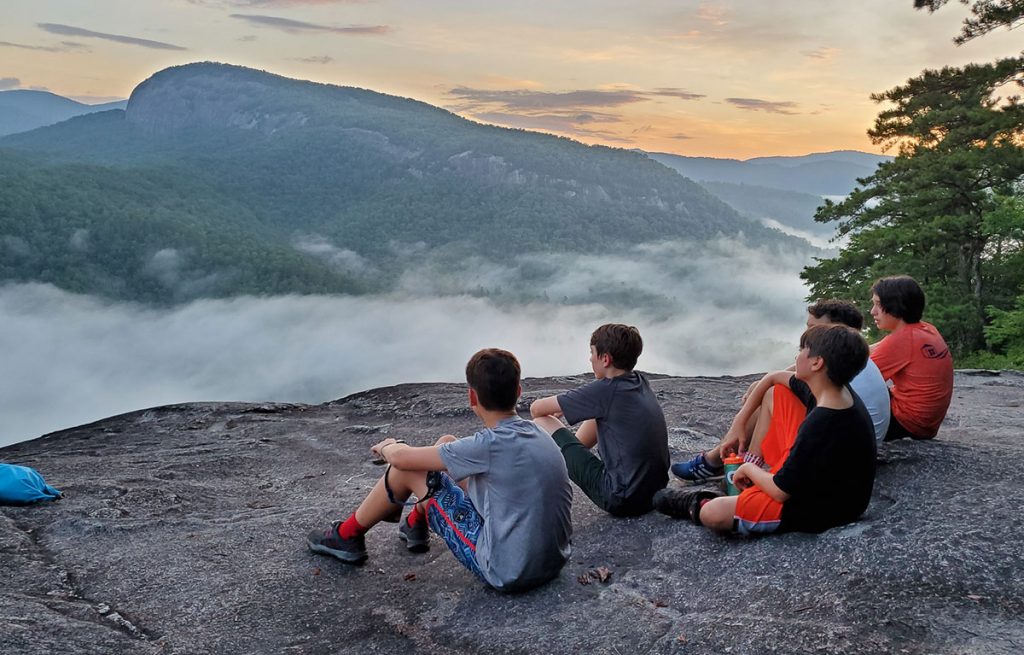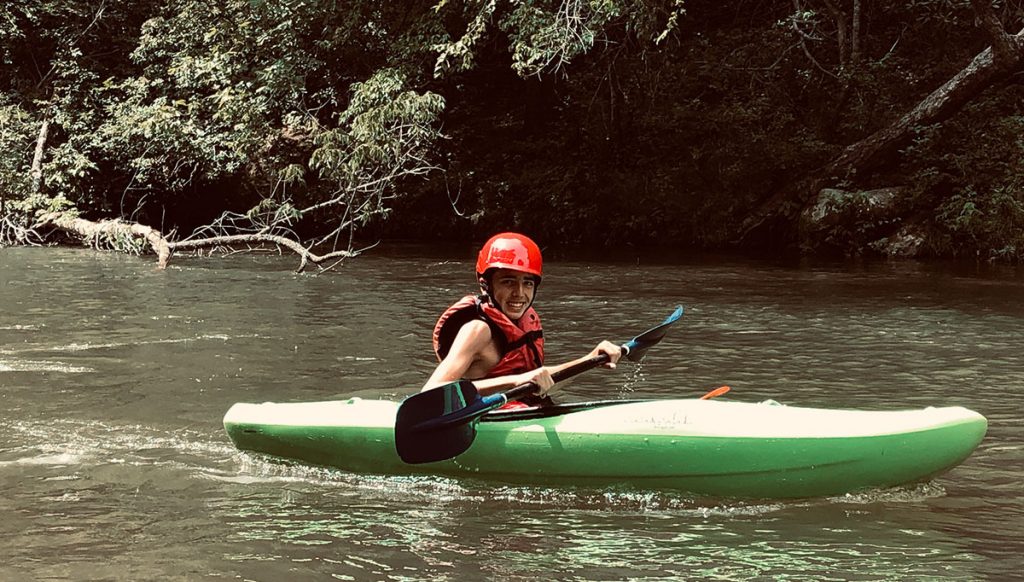By Andrea Little Gray, head nurse
A healthy camp experience starts at home
The build-up to going to camp is an exciting one. There’s the anticipation of meeting new friends, reunited with old ones, packing camp flair and gear, and maybe even getting to pick out a new pair of shoes or backpack. There also can be some anxiety about coming to camp. “Will I make new friends? What will it be like at night? What if I get homesick? How high is the Sky Park?.” While we all have these feelings (yes, even the nurses experience the same excitement and anxieties), we can do many things at home to help us have a successful camp experience this summer.
One of the most important things you can do is come to camp healthy and ready to play. In the weeks leading up to camp, get plenty of rest, drink lots of water, and eat healthy meals. Make sure your immune system is in the best shape it can be to help you hit the ground running when you arrive to camp. (If you want to read more about how a healthy camp begins at home, check this out.)
How viruses spread
Have you ever made an epic PB and J that had a ton of peanut butter and jelly on it? Remember how the jelly got on your hands and made them sticky? And then that sticky jelly seemed to get on everything you touched, like the counter in the kitchen, the remote as you changed the channel, your cheeks as you rubbed your face, and even your clothes! Well, that’s how viruses and other germs spread. If you don’t keep your hands, clean all those sticky germs will infect everything you touch.
Another way germs spread is by droplets. Droplets come out of our mouths and noses when we cough, sneeze, laugh hard, sing loudly, or even just talk. Did you know that a sneeze can travel up to 25 feet? Gross! Keeping a healthy distance between you and your cabinmates will help keep germs from spreading; so will covering your cough or sneezing into your elbow. Whenever you do sneeze or cough, make sure you wash your hands or use hand sanitizer afterward. You’ll find plenty of hand sanitizer and soap at Camp Pinnacle this summer!
Want to see just exactly how far a sneeze goes or how far germs can travel? Check out these Mythbusters episodes:
If the shoe fits, bring it!
Many times, we as parents don’t want to send our kid’s new pair of shoes to camp just to get dirty and stinky. Unfortunately, already-dirty shoes or ones that are too small sets up our campers for all kinds of issues, including sore feet, blisters, and ingrown toenails. Having broken/open skin or infections on a camper’s foot keeps them from having as much fun. It also means that your camper is missing out on fun by visiting the Health Center instead. So… if the shoe fits, bring it!
Allergies and camp
Being in the great outdoors of the mountains comes with many blessings, along with many allergens. These allergens can cause symptoms such as red/itchy eyes, coughing, sneezing, and sore throat. If a camper has to take allergy medicines periodically, it’s a good idea to have them take it regularly while at camp. When a camper has allergy symptoms, the Health Center staff will take their health history into account as they are treating the camper. This is why having the health history form filled out accurately and thoroughly is very important. Please make sure you clearly describe how your camper reacts when they have allergy symptoms and how you treat them at home. This will be valuable information that will help the Health Center staff make the proper plan of care for your camper.
Don’t scratch that itch
Bug bites at camp are going to happen, but a little bit of prevention can go a long way. Talk with your kids about the need to use bug spray to keep those pesky pests away. But, most important, don’t scratch that itch! Opening up the bite with dirty nails in an outdoor environment is not a good idea. Once a bite happens, not only can it be irritating, but it’s also a way for infection to sneak in. Remind your camper to apply bug spray throughout the day, look around the area before they sit down, make sure there is a towel or a seat between themselves and the ground, and let their counselor know if they are itching so the nurses can help.
Water each day keeps the doctor away
Staying hydrated is a simple thing to prevent campers from ending up in the Health Center. When we get dehydrated, our bodies react in many different ways… sometimes we feel grouchy or sleepy, sometimes we stomach issues like constipation, often we get a headache… dehydration can even show itself as a low-grade fever. We will have lots of opportunities for the campers to fill their water bottles at “hydration stations” and friendly reminders to drink up, but a conversation at home will help start camp off on the right foot.
